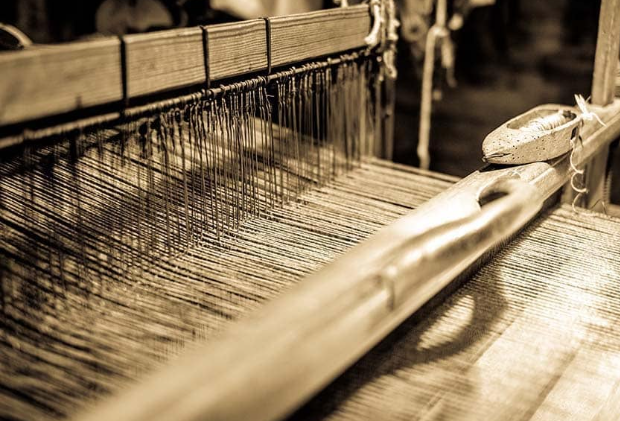Top 15 Most Used Sustainability Jargon And Acronyms For Small Businesses To Know!
Nov 09, 2021 | Elda Sobreiro Bernardino
 With sustainability becoming a more significant part of our daily life, most businesses have adapted to these changes. So they tend to have a large variety of jargon throughout their pages, which they use to describe all the changes done and the different methods they use to become a viable option for sustainable business such as yours!
As we search through the various pages of brands and manufacturers, we can sometimes become overwhelmed by all the acronyms found throughout them. There is such a broad aspect to sustainability and different needs for different industries.
Having a business such as yours comes with the responsibility of keeping yourself and your consumers updated on all aspects of your trade, and brands/manufacturers are not an exception to this.
We have here compiled and organised alphabetically the 15 top most talked-about jargon and acronyms that your business may come across!
With sustainability becoming a more significant part of our daily life, most businesses have adapted to these changes. So they tend to have a large variety of jargon throughout their pages, which they use to describe all the changes done and the different methods they use to become a viable option for sustainable business such as yours!
As we search through the various pages of brands and manufacturers, we can sometimes become overwhelmed by all the acronyms found throughout them. There is such a broad aspect to sustainability and different needs for different industries.
Having a business such as yours comes with the responsibility of keeping yourself and your consumers updated on all aspects of your trade, and brands/manufacturers are not an exception to this.
We have here compiled and organised alphabetically the 15 top most talked-about jargon and acronyms that your business may come across!
1. BAT (Best Available Technique)
Like the acronym, BAT stands for Best Available Technique; many manufacturers may have this on their official page to attract initial brands starting their journey into sustainability.
As the definition entails, you may use this method to see the most viable and available techniques to equip better their factories, such as switching their filtering system after dyeing fabrics so the water can be cleared of toxins before draining.
2. Biomimicry
Probably the core of any sustainable business, such as your small business, Biomimicry is a form of design that seeks sustainable solutions by mimicking nature. The goal is to create products and services well adapted to life on Earth over the long term.
This may be one of the most important among all the jargon since this brings into focus the values of a brand/business from the moment an idea takes route on paper. Creating products that revolve around durability and low impact is what green companies and business owners such as yourself want to strive towards. An idea may just be to take the natural resources around us and organically use them.
3. CCUS (Carbon Capture, Utilisation and Storage)
As a quick summary, CCUS stands for ‘Carbon capture, utilisation and storage as the name suggests. CCUS is the family of technologies and techniques in which carbon dioxide (CO2) is captured and used. This is meant to bring attention to manufacturing companies and how their factory plants operate.
An example is pressurised CO2 dyeing machines that use no water and utilise the captured carbon. Although this method is still not widely used, many small business owners, such as yours, could use this to invest in new greener techniques and do not add to water shortage like old dyeing methods.
4. CNG (Compressed Natural Gas)
Compressed Natural Gas, for example, methane stored at high pressure. CNG is a type of fuel that replaces gasoline, diesel fuel and propane, achieved by the decomposition of food and animal waste. This gas can safely be collected through an anaerobic digester and then filtered into a gas grid. Natural Gas is a clean and safe energy source with various commercial applications, such as electricity generation and fuel for transport.
Machinery can also be operated using these natural gasses as their fuel, so it has a lower impact on the environment than traditional fossil fuels. Suppose your business involves the use of industrial machines. In that case, this change can significantly improve the ecological systems around you and be an excellent way to gain positive attention from other businesses around.
4. DJSI (Dow Jones Sustainability Indices)
Dow Jones Sustainability Indices is an index used as a benchmark for investors who integrate sustainability considerations into their portfolios. It provides an effective engagement platform to refer to these companies who want to adopt sustainable best practices.
Using this index for your business can significantly improve your standing compared to others in the same area of expertise. Using this platform, you can also study and read about other business ventures and finances which can help you grow and reach other set goals.
5. ETS (Emissions Trading Scheme)
Emissions Trading Scheme (ETS) is a tool that puts a price on greenhouse gas emissions to reduce them. This works because every business has a limit to their CO2 emissions, which is set yearly. The catch is that this amount decreases each year as an incentive for firms to invest in green machinery and use the surplus for extra credit or buy certificates to release more emissions.
These businesses pass on these costs to their customers. It is one of the government’s main tools to meet emissions targets. If you are an energy-intensive manufacturer/business, this could be a way to implement an actual goal that yearly you are pledging to produce fewer emissions. On the plus side, you can also advertise as a green factory and promote to your consumers!
6. EEI (Energy Efficiency Indicator)
Energy Efficiency Indicator (EEI) is a survey conducted by Johnson Controls. The survey tracks the current and planned investments, key drivers, and organisational barriers to improving energy efficiency in facilities.
This survey could help assess areas that are being unnecessarily used, and or the changes can easily be changed. By studying this, you could implement in your small business to have smaller wasted energy, which allows you to lower the impact on the environment around you.
7. GMO (Genetically Modified Organisms)/Non-GMO (Non-Genetically Modified Organisms)
A genetically Modified Organism is, as the name suggests, a genetic material that has been altered via genetic engineering techniques. This is relevant to the sustainability of your business since many agriculture companies rely on GMOs and research to maintain their company as the climate changes. Still, in turn, some of these genetically altered plants can only survive by being fed pesticides that are absorbed into the soil and with long term use will make the soil unfit for agriculture.
Many will advocate for non-GMO, which has the opposite meaning. Non-GMOs are genetic materials that have not been altered via genetic engineering techniques and are entirely organic. Your small business may deal with plants modified to combat climate change but always research their agriculture impact in the surrounding soil and living organisms.
8. GRESB (Global Real Estate Sustainability Benchmark Investors)
Global Real Estate Sustainability Benchmark Investors use GRESB data and tools to manage ESG (Environmental, Social, and Governance Criteria) risks to capitalise on opportunities and continuously invest with investment managers.
This system also benchmarks ESG performance data to help businesses assess if they are achieving ESG goals. Assessments like these can, in turn, be kept for their business portfolio for future investors. Through using these assessments and compiling them in your portfolio, you can grow individually and become better acquainted with other businesses and what larger companies are looking for!
9. IPIECA (International Petroleum Industry Environmental Conservation Association)
IPIECA (International Petroleum Industry Environmental Conservation Association) association develops, shares, and promotes good practice and knowledge to help the industry. Their goal is to improve environmental and social performance in the industry by bringing to attention climate and energy, social and ecological issues.
This platform can primarily aid you to keep informed about the newest news and developments in the sustainability category so you can be one step ahead of the competition! You can also join their membership programs as Corporate/Associate/Association to become part of their industry group, share your knowledge, and communicate with investors and other industry professionals/stakeholders about their findings and their needs and goal.
11. LCA ( Life Cycle Analysis)
LCA means Life Cycle Analysis; this is the process used to measure the environmental impacts of a product or service throughout its existence so businesses can understand the ecological impact of their products.
Depending on your small business, this can benefit you by looking through your current products and reassessing how they impact the environment and the changes needed to improve and move your small sustainable business to new heights!
12. SBTs (Science-Based Target)
Science-Based Target is a method companies adopt to reduce greenhouse gas (GHG) emissions, considered “science-based”. These companies are in line with the level of decarbonisation required to keep global temperature increase below 2 degrees Celsius decided by the Paris Agreement.
Otherwise known as Paris Climate Accords, an international treaty on climate change, covers climate change mitigation, adaptation, and finances. You can submit a letter to establish your science-based targets throughout the year and implement this into your sustainable management. Once you join this, you can publish it on your website and disclose the information so your consumers and business associates can see the changes happening and the positive effect.
13. SDGs (Sustainable Development Goals)
Sustainable Development Goals (SDGs) A collection of 17 interlinked global goals designed to end poverty, protect the planet and ensure that all people enjoy peace and prosperity by 2030.
This organisation may help you realise other ways to help the environment or communities in dire need of help. Through the official website of SDGs, you can also find technical blogs or news where you can build your knowledge and attend webinars and events to build on your skills!
14. TCFD (Task Force on Climate-Related Financial Disclosures)
Task Force on Climate-Related Financial Disclosures (TCFD) are international organisations that develop consistent climate-related financial risk disclosures used by companies, banks, and investors to provide information to stakeholders. This Bill will make climate-related disclosures mandatory for around 200 organisations in the financial and insurance sectors.
A way to use this organisation is to become a part of the supporter group to join the list and be recognised by all types of industries, from retail to educational companies scattered across the globe. Another thing that can benefit your small business is their knowledge hub, which allows you to see other companies’ case studies and enrol in online courses that focus on companies’ management or financial impact.
All these resources can be adapted to your business and used so you can evaluate the fine print of your own business!
15. Waste Stream
The meaning of waste stream is the complete flow of a specific type of waste from domestic or industrial areas to recovery, recycling, or disposal.
From investing in filtering systems for water disposal, rearranging how patterns are laid out on fabric to minimise wastage or even switching to machines that work on natural gasses are just a few ways small manufacturing or business owners can evaluate and reduce waste stream!
Conclusion
Acronyms and jargon are mainly used to summarise projects, targets and goals for a business. Many can be confusing, but we hope that your business can apply and learn these when adjusting your approach to sustainability!
Also, make sure to drop by Rural Handmade so we can help you take the next step in your business!
We will provide you with handmade eco-friendly sustainable products so that you can grow without negatively affecting the environment around you!
Contact us to find out more!
Recommended








